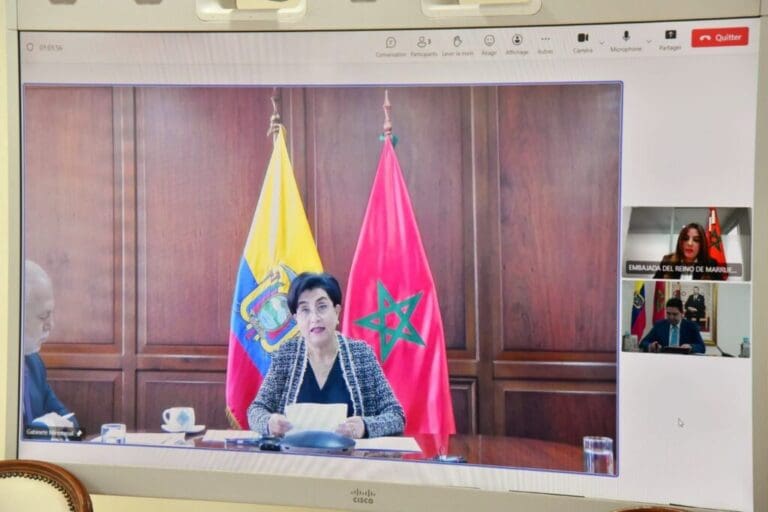Morocco and Ecuador are two countries determined to cooperate on issues of common interest and to contribute to international initiatives for peace, security and development.
Such cooperation include the Sahara Autonomy Plan, which enjoys the backing of Quito.
Ecuador, a non-permanent member of the United Nations Security Council for the period 2023-2024, has reaffirmed its support for the Moroccan autonomy initiative for Western Sahara, considered a serious and
credible solution to this regional dispute.
During a meeting held by video conference with her Moroccan counterpart, Nasser Bourita, Ecuadorian Foreign Minister Gabriela Sommerfeld reiterated her country’s clear position on this sensitive issue.
In particular, Ms. Sommerfeld reiterated Ecuador’s decision to suspend its recognition of the so-called Sahrawi Arab Democratic Republic (SADR), self-proclaimed by the Polisario. She stressed that this decision is in line with the universal principles of sovereignty, territorial integrity and non-interference in the internal affairs of
states.
The head of Ecuadorian diplomacy also confirmed his country’s support for the political process under the auspices of the United Nations, aimed at achieving a negotiated, realistic and mutually acceptable political solution.
In their joint statement, the two parties agreed that the Moroccan autonomy initiative constitutes a solid basis for a peaceful and pragmatic solution to the conflict, by prioritising compromise between the parties concerned. This approach is now supported by a majority of UN member states, further strengthening Morocco’s diplomatic position.
Towards strengthened partnership
Beyond the Western Sahara issue, the ministers of the two countries discussed ways to strengthen their bilateral cooperation within the framework of the South-South dynamic. This meeting was marked by the signing of a
framework memorandum aimed at deepening collaboration in areas of common interest. An agreement was also initialed to remove the visa requirement for holders of diplomatic and service passports, demonstrating the commitment of both nations to consolidate ties.
Ecuador’s suspension of its recognition of the SADR, decided in October, is part of a series of similar steps taken by other countries. In November, Panama also announced the severance of its relations with the Polisario, affirming its support for a peaceful, just and lasting solution to the Western Sahara issue.
In this context, King Mohammed VI sent a message of gratitude to Panamanian President Jose Raul Mulino Quintero, welcoming this decision, which he described as “wise” and in line with the legitimate
aspirations of the kingdom.
Today, more than 100 states around the world, including major powers such as the United States and France, explicitly back the autonomy plan proposed by Morocco.
This international consensus testifies to the credibility of the Moroccan initiative and strengthens the prospects for a lasting resolution to this long-running regional dispute.
MK/Sf/ac/fss/as/APA


